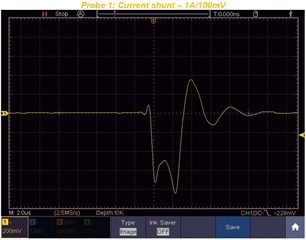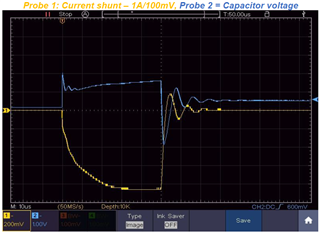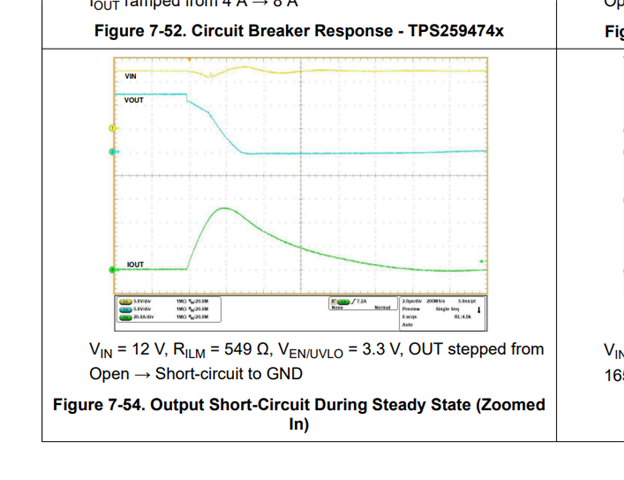Hi,
I am currently testing the TPS259474A on a battery system. The battery will be permanently powering the eFuse with the eFuse built into the battery side of the circuit. I appreciate this isn’t the best architecture but due to historic reasons, this is the only option in the current system.
The eFuse will therefore be permanently powered, so I assume the ‘Inrush current control’ won’t be a feature we will be able to make use of. Instead, if our battery (and eFuse) are plugged into a piece of equipment with a large input capacitance, the inrush current will trigger the ‘fast trip’ or ‘short circuit’ response? Is this assumption correct?
If my assumption is correct, I would expect the response to an inrush current to be the same as a short circuit response and approximately equal to the tft time (~500ns), which is specified for ISC and IFT.
This is my short circuit response (~3us, which is acceptable):

This is the inrush response to an external 470uF capacitor (35us, which is not what I’d expect)

The above inrush test was achieved by connecting a powered up eFuse (3.7V) straight to a 470uF capacitor with probe 3 of the scope connected to the capacitor positive pin.
Does what I am seeing make sense? Is this to be expected?
I have noticed the below statement in the datasheet but I'm not sure what it means or how it is calculated? It also seems to be referring to turn off delay time which doesn't seem to apply to the short circuit response as it is a factor of 10 higher than what I'm measuring for s/c.
"The Turn-Off Delay and Fall Time, however, are dependent on the RC time constant of the load capacitance (COUT) and Load Resistance (RL)."
Thank you in advance for your help with this.
Regards
Matt


